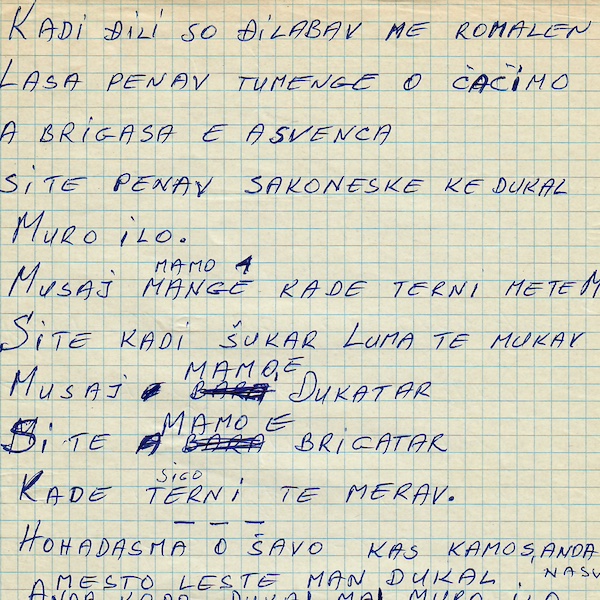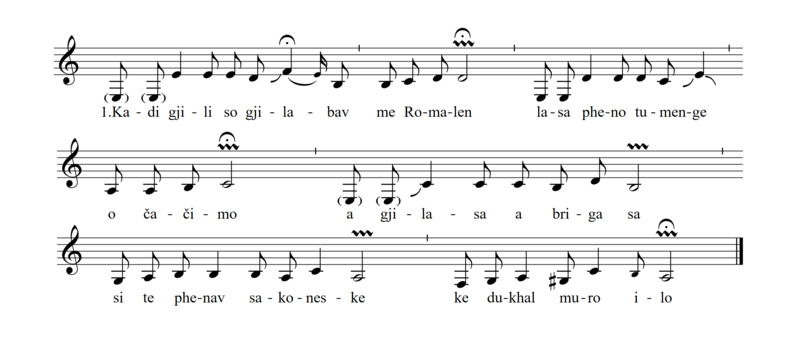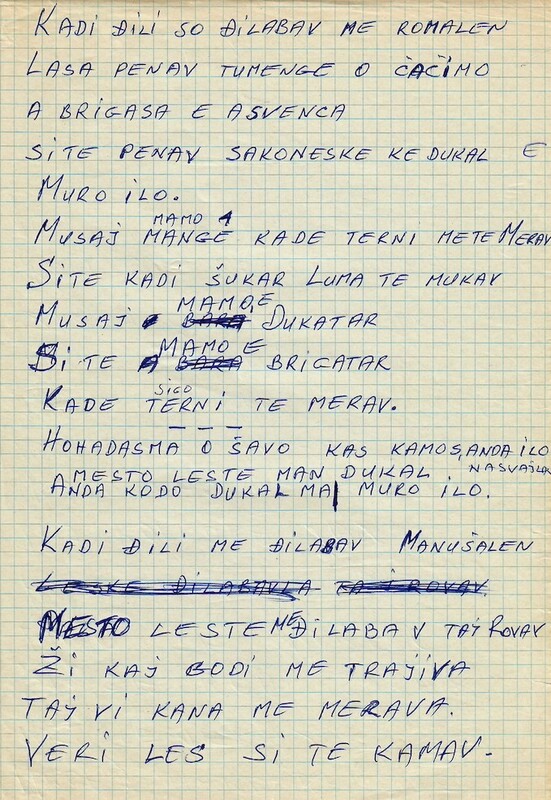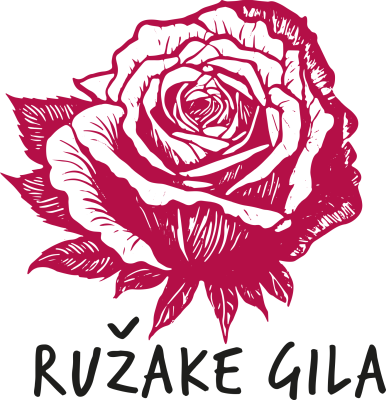
Kadi gjili so gjilabav
- Genre
- neues Lied
- Thema
- Klagelied
- DOI
- doi.org/10.21939/hbqv-r580
Content
Recordings
Kadi gjili so gjilabav is a sad love song in which a girl expresses her pain of love and says that she almost has to die from it.
Musical transcription based on the booklet accompanying the CD Amare gila - Unsere Lieder / Our Songs
In the Lovari tradition, it is customary for a woman not to sing without the prompting of a male reference person. Therefore, in the following recording, which was made during a performance at the Interkulttheater, Mišo Nikolić can be heard asking his wife Ruža Nikolić-Lakatos to sing. The last line of Kodo phende sa le Roma, in a free translation, says: “Ruža, sing me my song, sing it for me with all your heart, let the others hear it and sing it too.” This is a musical interpretation of the request, usually spoken within a family context. Mišo Nikolić created this intro, especially for the beginning of the stage program at the Interkulttheater.
The performance by Ruža Nikolić-Lakatos and Mišo Nikolić at the Interkulttheater in 1993 begins with Mišo singing the song Kodo phende sa le Roma. Keeping the Lovari tradition, he asks his wife Ruža to sing. She appears on stage and begins with Kadi gjili so gjilabav.
Commentary
(GERMAN ONLY) Ruža Nikolić-Lakatos, Mišo Nikolić and Ursula Hemetek develop a performance concept for the joint performance at the Interkulttheater on October 9, 1993. In this recording, one can hear the three of them discussing suggestions for the lighting on stage to visually highlight Kadi gjili so gjilabav.
(GERMAN ONLY) Ruža Nikolić-Lakatos, Mišo Nikolić and Ursula Hemetek develop a performance concept for the joint performance at the Interkulttheater on October 9, 1993. The transition from Kodo phende to Kadi gjili so gjilabav is discussed.
Lyrics
Stanza 1
| Kadi gjili so gjilabav me, Romalen, | This song that I sing, Roma, |
| lasa pheno tumenge o čačimo. | shall tell you the truth. |
| A gjilasa, a brigasa | With this song and my sorrow |
| si te phenav sakoneske, | I tell everyone |
| ke dukhal muro ilo. | that my heart hurts me. |
Stanza 2
| Musaj, mamo, kade terni me te merav, | Must I die so young, |
| si te kadi šukar ljuma te mukav. | must I leave this beautiful world! |
| Si te, Devla, me dukhendar, | Must I, God, from pain, |
| si te, mamo, a brigatar | must I, mother, from sorrow |
| kade terni te merav. | die so young! |
| ||:Ke xoxadas man o šavo, | ||: He betrayed me, the guy |
| kas me kade but kamos, | I loved so much. |
| misto leste nasvajlas | He made my heart |
| muro ilo. | sick. |
Stanza 3
| Misto leste vi djesesa vi ratjasa | Because of him, day and night, |
| muro ilo pakja, mamo, či rakhel. | my heart finds no rest, mother. |
| Ži kaj godi me trajino, | As long as I live, |
| ži kaj godi me merava | until the day I die |
| muro ilo les kamel.:|| | my heart will love him. :|| |
Manuscript by Mišo Nikolić
Video
Ruža Nikolić-Lakatos and her son Mischa Nikolić perform Kadi gjili so gjilabav on occasion of the 60th birthday of ethnomusicologist Ursula Hemetek. Ruža's Parkinson's disease is already strongly visible.
Zitierempfehlung anzeigen
Bitte zitieren Sie diese Seite wie folgt:
Music and Minorities Research Center, "Kadi gjili so gjilabav", Ružake gila, zuletzt besucht am Loading date..., doi.org/10.21939/hbqv-r580



